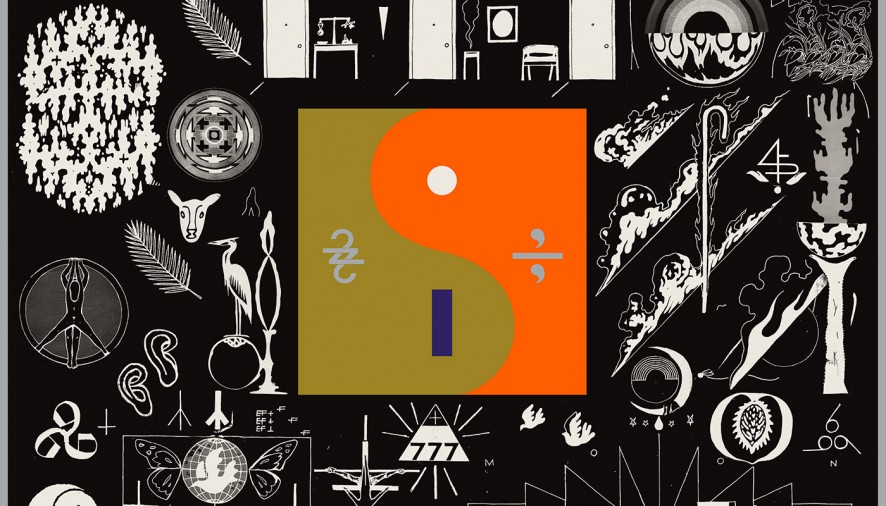In the five years Justin Vernon has spent on 22, a million, his popularity has soared exponentially. Vernon’s association with Kanye West, with whom he contributed on My Beautiful Dark Twisted Fantasy and Yeezus, brought his music directly into the spotlight. No secret has been made of the discomfort which this newfound popularity has brought; Vernon recently described feeling “very exposed, with scarred skin from the whole experience” in a rare interview with The New York Times.
This feeling of being uncomfortably exposed is prevalent within the album. 22, a million is nosier, messier and more convolutedly produced than the Bon Iver sound which we have previously been accustomed to. Particularly the opening tracks, ‘22 (OVER S∞∞N)’ and ‘10 d E A T h b R E a s T’ in which a heavily post-produced Vernon battles with the jarring soundscape to croon “it might be over soon” and “I cannot seem to find I’m able”. The heavy production and special effects place a boundary between Vernon’s visceral expression and his audience which had previously not been present, or indeed necessary.
The album slowly grows into itself, as Vernon is beginning to come to terms with his new life. By the closing tracks the production is cleaner, allowing a more familiar Bon Iver sound to develop, centred around vocals rather than special effects. In fact, ‘8 (Circle)’ and closing track ‘00000 Million’ would not be misplaced on the self-titled album of 2011.
22, a million is a far cry from 2007’s For Emma, Forever Ago. If Vernon’s debut was an introverted young artist’s exploration of heartbreak in a rural Wisconsin hunting cabin, 22, a million is that same introverted artist trying to find a way to make sense of the bright lights and attention which accompany critical acclamation and selling millions of records.
Rory Shell
(Image: pitchfork)

